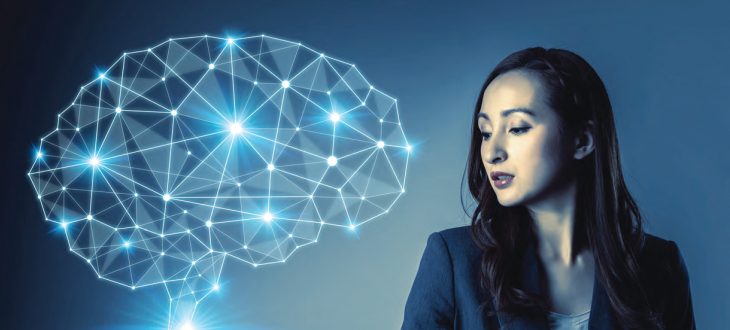The rapid advance of technology has resulted in CPA firms hiring more nonaccounting graduates in order to integrate new tools into their practice.
copyright by www.cpajournal.com
 For example, one national firm leader reported that more than 25% of its new entry-level hires are science, technology, engineering, and math (STEM) majors (Allan Koltin, opening remarks at Advisory Board’s Winning is Everything Conference, Dec. 13, 2017, http://bit.ly/2wrh091 ). Specifically for the accounting profession, the integration of artificial intelligence (AI) with robotic process automation (RPA) can create intelligent virtual workers to improve productivity. On facing the challenge of AI, Barry Melancon, AICPA CEO and president, has said, “With AI the whole ramification of jobs in society is a huge issue, and those that embrace it will be the most successful” (Michelle Perry, “AICPAs Barry Melancon on the Challenge of Change in Accountancy,” ICAS website, Oct. 6, 2017, http://bit.ly/2Wajgkm ).
For example, one national firm leader reported that more than 25% of its new entry-level hires are science, technology, engineering, and math (STEM) majors (Allan Koltin, opening remarks at Advisory Board’s Winning is Everything Conference, Dec. 13, 2017, http://bit.ly/2wrh091 ). Specifically for the accounting profession, the integration of artificial intelligence (AI) with robotic process automation (RPA) can create intelligent virtual workers to improve productivity. On facing the challenge of AI, Barry Melancon, AICPA CEO and president, has said, “With AI the whole ramification of jobs in society is a huge issue, and those that embrace it will be the most successful” (Michelle Perry, “AICPAs Barry Melancon on the Challenge of Change in Accountancy,” ICAS website, Oct. 6, 2017, http://bit.ly/2Wajgkm ).
While AI is still an evolving technology, many applications have recently made impressive leaps. For example, computers can defeat chess champions, help drive cars, instruct drones to return automatically, provide medical diagnoses, perform as virtual assistants, and navigate vacuum cleaners through a furnished house. The AI applications for business involve training computers to do tasks employees can perform, learning from experiences and adjusting to new data, if needed. Currently, CPA firms can use intelligent robots to count inventories, inspect fixed assets, handle bank audit confirmations, and read contracts or other documents to generate meaningful insights.
Some CPAs may assume that, like big data or blockchain, AI is a relatively recent development. To the contrary, AI research started even before the creation of the Accounting Principles Board, FASB’s predecessor, in 1959. Subsequently, several subfields of AI have emerged, including robotics, perception (vision and speech), machine learning (ML), and expert systems (ES). This article will help CPAs understand AI and the current AI-enabled tools in accounting. In addition, it offers suggestions on how to embrace this powerful technology to benefit CPAs and CPA firms.
Alan Turing, who played a pivotal role in breaking Germany’s Enigma code during World War II, is considered by many as the father of AI. In his milestone paper, “Computing Machinery and Intelligence,” Turing raised the question, “Can machines think?” and discussed how to build intelligent machines (Mind, October 1950, http://bit.ly/2MgwNCq). The term “artificial intelligence” was first coined by John McCarthy, who defined it as “the science and engineering of making intelligent machines.” In 1955, McCarthy coauthored a research proposal to study AI with Marvin Minsky, Nathaniel Rochester, and Claude Shannon (A Proposal for the Dartmouth Summer Research Project on Artificial Intelligence, https://stanford.io/2KdBeeK), which launched it as a research field. Unfortunately, contemporary computers could not store enough data or process it fast enough to exhibit intelligence. As research interest subsided, so did funding (Rockwell Anyoha, “The History of Artificial Intelligence,” Harvard University blog, Aug. 28, 2017, http://bit.ly/2VZgQzU).[…]
read more – copyright by www.cpajournal.com


The rapid advance of technology has resulted in CPA firms hiring more nonaccounting graduates in order to integrate new tools into their practice.
copyright by www.cpajournal.com
While AI is still an evolving technology, many applications have recently made impressive leaps. For example, computers can defeat chess champions, help drive cars, instruct drones to return automatically, provide medical diagnoses, perform as virtual assistants, and navigate vacuum cleaners through a furnished house. The AI applications for business involve training computers to do tasks employees can perform, learning from experiences and adjusting to new data, if needed. Currently, CPA firms can use intelligent robots to count inventories, inspect fixed assets, handle bank audit confirmations, and read contracts or other documents to generate meaningful insights.
Some CPAs may assume that, like big data or blockchain, AI is a relatively recent development. To the contrary, AI research started even before the creation of the Accounting Principles Board, FASB’s predecessor, in 1959. Subsequently, several subfields of AI have emerged, including robotics, perception (vision and speech), machine learning (ML), and expert systems (ES). This article will help CPAs understand AI and the current AI-enabled tools in accounting. In addition, it offers suggestions on how to embrace this powerful technology to benefit CPAs and CPA firms.
Alan Turing, who played a pivotal role in breaking Germany’s Enigma code during World War II, is considered by many as the father of AI. In his milestone paper, “Computing Machinery and Intelligence,” Turing raised the question, “Can machines think?” and discussed how to build intelligent machines (Mind, October 1950, http://bit.ly/2MgwNCq). The term “artificial intelligence” was first coined by John McCarthy, who defined it as “the science and engineering of making intelligent machines.” In 1955, McCarthy coauthored a research proposal to study AI with Marvin Minsky, Nathaniel Rochester, and Claude Shannon (A Proposal for the Dartmouth Summer Research Project on Artificial Intelligence, https://stanford.io/2KdBeeK), which launched it as a research field. Unfortunately, contemporary computers could not store enough data or process it fast enough to exhibit intelligence. As research interest subsided, so did funding (Rockwell Anyoha, “The History of Artificial Intelligence,” Harvard University blog, Aug. 28, 2017, http://bit.ly/2VZgQzU).[…]
read more – copyright by www.cpajournal.com
Share this: